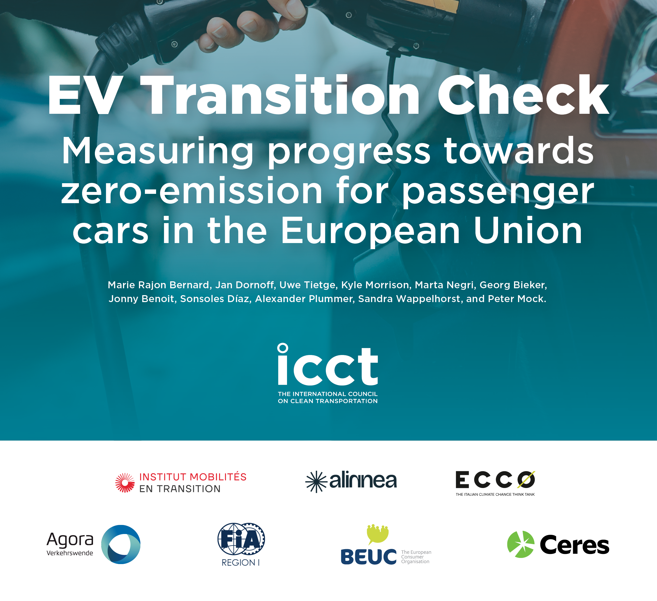Home / The transition to electric cars is accelerating

In recent years, the European automotive sector has undergone a significant transformation. Today, the European Union is a net exporter of battery electric cars and ranks second in global electric car production. From around 80,571 battery electric cars in 2015, EU production reached 2.35 million by the end of 2024. In the first half of 2025, fully electric cars achieved a record average market share of 17% across Europe.
“Our report concludes that the transition to electric vehicles in Europe is on track and accelerating,” said Peter Mock, director of ICCT Europe. “Car manufacturers are only 9 grams away from their next CO2 target in 2027. The preferred strategy for achieving this target on time is to sell more battery electric cars, which is not surprising: battery costs are falling sharply, charging infrastructure is expanding, and battery electric cars are becoming cleaner faster than expected.”
The report shows that while in 2015 the European automotive sector was still dominated by polluting cars that affected public health and undermined climate goals, today, despite pessimistic headlines and pressure from quarterly results we have a much cleaner industry and a path towards an emission-free automotive sector. The report shows that car manufacturers should be less concerned about meeting the next targets and more about remaining globally competitive. Doubts from politicians and industry can only undermine investor and consumer confidence in the transition, while car manufacturers based in China gain ground. What matters now is to keep the transition on track, without delays or detours.
The report is supported by various European think tanks, including alinnea. “We welcome this important report, which provides strategic insights for advancing the transition to sustainable mobility and a zero-emission automotive sector,” said Ana Belén Sánchez, director of alinnea. “We greatly appreciate that its preparation has involved networking among various European think tanks to rigorously assess the progress made, identify the challenges ahead, and guide policies that ensure the global competitiveness of our industry. What we need now is to accelerate and consolidate battery production in Europe and maintain citizens’ confidence in this historic change.”
EU CO2 standards have steadily driven industry progress, reducing emissions by 42% since 2009. Battery electric cars sold in Europe emit 73% less greenhouse gases (GHG) than gasoline cars over their lifetime, even when production emissions are taken into account. What’s more, they are becoming increasingly attractive to consumers. They are now the cheapest to drive, costing around €7.43 per 100 kilometers, compared to €8.60 for diesel and €11.02 for gasoline.
The rollout of public charging infrastructure is often cited as a major obstacle in the transition to electric vehicles. “The analysis concludes that, overall, public charging is being deployed at a sufficient pace, with differences between countries reflecting differences in the adoption of electric vehicles,” explained the report’s lead author, Marie Rajon Bernard, senior researcher at the ICCT. The number of public chargers has increased by more than 45% per year on average since 2020, reaching 1 million charging points in the EU in July 2025. “This growth rate is well above the 14% annual increase that is expected to be necessary until 2035,” added Rajon Bernard.
Looking ahead, the report highlights the importance of securing a local European battery industry to remain competitive in the global market. While almost half of all electric vehicles manufactured in Europe already use domestically produced batteries, the growing demand for batteries represents a significant untapped opportunity for industrial growth.